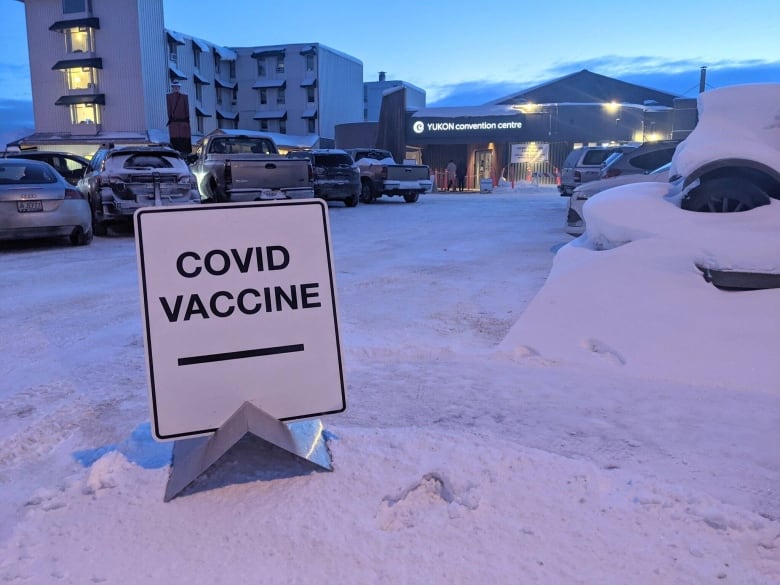Yukon's vaccine uptake seems to be 'stalling out,' says head of medical association
'I worry now that the limitation is ... lack of interest in getting vaccinated,' said Dr. Ryan Warshawski
Dr. Ryan Warshawski says he's a little bit addicted to watching Yukon's online vaccine tracker. It keeps a running tab on how many Yukoners have received their first and second doses of the Moderna COVID-19 vaccine.
But Warshawski, president of the Yukon Medical Association, is a little concerned by what he's seen lately.
"Every time I watch it, I try and see that needle go a little bit higher — and it seems like we're stalling out," he said.
"And I worry now that the limitation is not lack of access to vaccines, or lack of access to vaccinators, but lack of interest in getting vaccinated."
The last weekly update showed that 25,065 people, or 71 per cent of eligible adults in Yukon, had received their first shot as of Monday, while 20,326 people, or 59 per cent of those eligible, had also received their second shot.
Warshawski calls that an "absolutely fantastic" achievement — but says there's still a ways to go in order to reach herd immunity in the territory.
"The unfortunate problem with vaccines and with pandemics is, we really need to get as many people as we can vaccinated."
Yukoners don't even need an appointment anymore to get vaccinated — clinics now accept walk-ins.
Lower uptake in some regions
So far, the lowest rate of vaccine uptake is in the central territory and the southeast. As of Monday, 47 per cent of eligible adults in central Yukon had received their second dose, compared to 74 per cent in western Yukon.
Younger adults in Yukon have also been slower to get jabbed, according to the government's data. The rate of vaccination increases by age group, with those 70 years and older most likely to have received their shots.

Warshawski says there may be many reasons why the vaccination rate has slowed.
"I think some people are just, you know, a little bit blasé about it. They sort of say, 'well, if I get COVID, I'm young, I'll probably be fine. I don't really feel the need to get vaccinated,'" Warshawski said.
He also says some people just don't trust institutions, or don't like feeling as though they're being told what to do.
"Listen, I live in the Yukon, too. I get it. You know, I don't always like being told something by an authority figure," he said.
"So I would encourage anyone who has questions, who isn't sure, who's really just feeling like this is just being pushed upon them — please just talk to us. You know, call your doctor, call your community health nurse."
He also recognizes that some people just won't be persuaded, no matter what. He points to misinformation that circulates online, and how some people can become deeply immersed in it.
"The challenge is, is that it is virtually impossible to have a real conversation with these individuals," he said.
"I don't think there's a lot of hope of me reaching some people."

Still, he encourages others to do what they can to battle misinformation by asking questions of their health providers, and sometimes, by pushing back on social media.
"It would be wonderful if, you know, people were chiming in and we were creating sort of an online movement that was sort of evidence-based."
Vaccinations, he says, still offer the best chance to move beyond the pandemic — and Yukon health officials are trying to figure out how to keep people from feeling blasé about the shot.
"The reality is, I don't want to be up at three in the morning looking after COVID patients — I would rather be sleeping. You know, I would rather be taking my kids to the pool that no longer has any restrictions on it," he said.
He also has a message for those who've been vaccinated already.
"Take a moment, pat yourself on the back. You know, you've done the single greatest thing you can to help end this pandemic."
With files from Elyn Jones